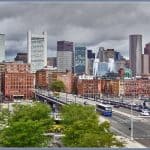Because I spend a lot of my day working around all things travel, that knowledge somehow defines a general theme for many of my posts. Even on my twitter account (@globalculture) I often find it easier to engage in casual conversation whenever the topic is travel. People lighten up when talking about travel.
So when @jenandtheart made a comment about how the Global Culture blog was rising above the usual lightness with which most people talk about travel and culture, he really got me thinking. Long time ago I diagnosed myself with the “meaningful conversation disorder” by which I usually feel inadequate unless a conversation can transcend the mundane. And it seems this blog suffers that same fate.
If I have been talking about travel a little bit too much and it seemed out of place amid the more profound earlier debate, here is a spin that should bring the tone of the blog back to its usual depth:
If you have been planning on reducing your travel budget because the current economy makes you cautious, start packing. You may be travelling sooner than you’d expect.
First some context: in smaller houses, better communities I echoed the idea that the current environment should accelerate some of the urbanization trends, such as concentrating within the core areas that foster creativity and innovation, even if that means moving more often:
“Less ties to a place would create an incentive for people to relocate to the hubs where new opportunities arise.”
And in a call to not waste the current crisis, I seconded the notion to take advantage of the unique opportunity that we have to challenge the old ways to lead to a new standard of living:
“as we grow aware of the world around us and educate ourselves in the ways of other peoples and cultures, we can’t help but notice that things abroad are not too different from things around the corner. In the midst of a global recession it’s easy to panic if we are all doing things in the same ways, buying the same products, asserting the same way of live. After all when the entire boat is going down, you don’t want to be where the majority of the crowd is (pardon the extreme analogy). Instead each one of us will look at doing things a little bit different, trying to use all those lessons on global culture to create a unique mix that will allow us to become unique actors in a complex stage where the rules are about to be rewritten.
In “How the Crash Will Reshape America”, Richard Florida provides an insightful look at the various factors that will be changing the balance of power among American cities. He challenges the assumption that New York will succumb at the same pace its financial industry melts down and believes it will in fact force its creative industries to take the lead in many other fronts… diversifying its portfolio, so to speak.
And just like being in New York during this transitional phase will likely present key opportunities to those that storm the weather, all the other world’s mega-regions will continue to concentrate talent and produce most economic output. Urban innovation will have to accelerate to sustain the rhythm of life in these regions.
Ultimately a variety of factors will lead to a new American urban geography according to Florida:
It will likely be sparser in the Midwest and also, ultimately, in those parts of the Southeast that are dependent on manufacturing. Its suburbs will be thinner and its houses, perhaps, smaller. Some of its southwestern cities will grow less quickly. Its great mega-regions will rise farther upward and extend farther outward. It will feature a lower rate of homeownership, and a more mobile population of renters. In short, it will be a more concentrated geography, one that allows more people to mix more freely and interact more efficiently in a discrete number of dense, innovative mega-regions and creative cities.
An uprooted population, globally inclined, aware of the fact that jobs will be scarce is likely to give away its current address in exchange for some job security. In particular if those jobs are in tune with the zeitgeist. Settling in a new city used to be something you did maybe twice in a lifetime. I believe many of us will be faced with this transition more than a few times. In the same way that the average person would move to a bigger house every 3-5 years (eventually buying the one they couldn’t afford), many of us will find ourselves pondering not a better neighbourhood but a completely new city.
This may sound like a bold move, but your inner global citizen is rejoicing at the possibility that a new travel adventure is around the corner. Pack lightly as you may be on the road for some time. I believe our ancestors used to call this a ‘nomadic’ life.








I’m not a fan of Florda’s—he’s a bit too hyperbolic for my taste—but I agree overall with your notion about how the compression of our economy will get more people moving.
What continues to fascinate me is watching how people migrate now that they can be connected from and to anywhere. Some are hunkering down in small towns instead of big cities while others, as the final line in your post suggests, just keep moving.
Anyhow, you’ve successfully avoided the mundane 😉
Pingback: Links for 27th March 2009 | Velcro City Tourist Board
When telecommuting was first introduced it was thought would change the entire dynamics of cities and the promise was never realized. Yes, people work from home, but they still need their little urban exposure now and then.
I started featuring little villages as we seem to be attracted to them to escape from urban centers, but we can’t quite figure out how to stay there. The qualities they lack, cities have. Will cities engulf every little cute village eventually? Or perhaps villages will finally acquire the urban attributes that would make them more desirable.
Well, cities will always be cities and offer a broad “spectacle of life.” No change in culture, technology, or migratory patterns will change that. Cities are the roots of civilization.
But cities have diminishing returns: at one point or another, they simply don’t scale. That’s where this offloading feature works: you can live close to a big city but not deal with it’s headaches each day. Before the grid, upstate NY was a series of bedroom communities. Increasingly, though, as more folks spend only a couple of days in Manhattan, their local towns get a bit more attention, a little more love, and greater interaction.
Like many things, the network allows for a strong neck in the long tail: you don’t have to live in the city, but you also don’t have to be stuck in a remote place, far from the culture you may seek.
As for
You know I am now living in my 7th city, at some point, you want to stop being a tumbleweed and start building some roots, I will let Thomas Friedman say it for me:
Olive trees are important. They represent everything that roots us [and] locates us
in this world…We fight so intensely at times over our olive trees because, at their best, they
provide the feelings of …belonging that are as essential for human survival as food in the
belly. … [Conflicts] over who owns which olive tree are so venomous precisely because
they are about who will be at home and anchored in the local world and who will not be.
Their underlying logic is: I must control this olive tree, because if the other controls it, not
only will I be economically and politically under his thumb, but my whole sense of home will
be lost…. Few things are more enraging to people than to have their identity or their sense
of home stripped away. They will die for it, kill for it, sing for it, write poetry for it and
novelize about it. Because without a sense of home and belonging, life becomes barren
and rootless. And life as a tumbleweed is no life at all. (Do you sense my despair?)
A global village may mean that we know more about each other, but not that we understand better each other…
I believe Friedman’s metaphor of the Lexus and the Olive Tree helps explain many of the events that have driven globalization over the last couple of decades. But I firmly believe that the trend is for cultural integration and this means that there will always be mobile people that will have to integrate into a host society, and that this process will repeat itself until the elements of various cultures converge into a single multicultural entity. We may not understand each other better yet, but with enough practice we should get better at it. As for your broken sense of belonging instead of obsessing about how far you are from where you started, try to focus on how close you are to where your children and grandchildren will call home.
Always felt the best destination I’ve ever seen is home after a long trip.